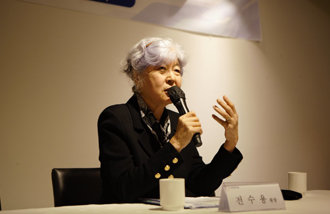Election Costs Hurt Local Governments
Election Costs Hurt Local Governments
Posted January. 20, 2006 04:53,
The Hyundai Motor Company labor union in Ulsan decided last June to build a comprehensive welfare facility on a 2,700-pyeong land parcel in Yeonam-dong by 2008 and donate the facility to the city.
According to the plan, construction should be underway, but it is not. That is because the district failed to secure funding for a two billion won access road needed by the project.
We needed 30 billion won for the project this year, but were only allocated only 5.5 billion won, a district official said. Because we have to pay local election costs and the salaries of local parliamentarians, we cannot even think of pushing ahead with new projects, such as the welfare facility.
Gangjin County, the poorest among the 22 cities, counties and districts in the Jeonnam region, was planning to build a welfare facility for the elderly in Maryang-myeon, was unable to start construction because it failed to secure the 400 million won necessary to do so.
For the county, securing money for local elections seems to be more urgent. In the meantime, the county is considering using a revised supplementary budget to pay for the project.
Local self-governments across the country are reeling because of the costs of the fourth local elections scheduled for May 31 and because of the salaries of local parliamentarians. Local governments with weak financial status even have to reduce a welfare budget for their residents.
According to the national association of chairmen of cities and provinces, led by Seoul Mayor Lee Myung-bak, local self-governments will pay 622.6 billion won in local elections costs, more than three times the total election costs in 2006 (196.5 billion won).
This increase is the result of a public official election law revision last June expanding local government election cost responsibilities.
Before the revision, local governments only paid the election costs for candidates who garnered 15 percent or more of the vote, but the law revision makes them responsible for half the election costs for candidates who receive 10 percent or more of the vote starting this May.
Election costs are predicted to increase 5.5 times to 354.5 billion won this year from 64.4 billion won in 2002.
Basic election administrative expenses are expected to double to 268.1 billion won from 132 billion won.
Local governments are also having trouble paying local parliamentarian salaries according to the enforcement ordinance for local self-government announced last December 29. That is because salaries for local parliamentarians need to be reflected in budget every year, while election costs are needed only once every four years.
The central government is proposing that local parliamentarian salaries be controlled by each local government, with the salary of the vice head of the local government as a ceiling. If the enforcement ordinance is revised as the central government proposes, an additional 195.1 billion won will be needed nationwide every year.
Under these circumstances, regions with low levels of financial independence are complaining. After holding elections and paying local parliamentarians, we will be left with no money to spend, one official said.
Kang Hyung-ki, a public administration professor at Chungbuk University and an advisor with the Korea Association of Local Government Studies, pointed out, It is irresponsible of the administration to hand over elections affairs, which are a national responsibility, to local governments and to have local governments pay for election costs and local parliamentarians salaries.
In response, Chun Tae-hun, a Ministry of Government Administration and Home Affairs official, said, Enforcement of the parliamentarian salary ordinance will begin early next month, adding, Payment for local parliamentarians is the responsibility of representatives of local governments, and it would be inappropriate for the central government to intervene.
Jang-Ki Woo Jae-Rak Jeong straw825@donga.com raks@donga.com
Headline News
- US: Japan will double its defense budget, and so should S. Korea
- Trump's win could present opportunities for S. Korean defense firms
- ‘Don’t expand the war in Ukraine,’ Trump tells Putin
- Korean fencing men's sabre wins World Cup team event
- Yoon who should take the lead and reinvent for the second half of his term







